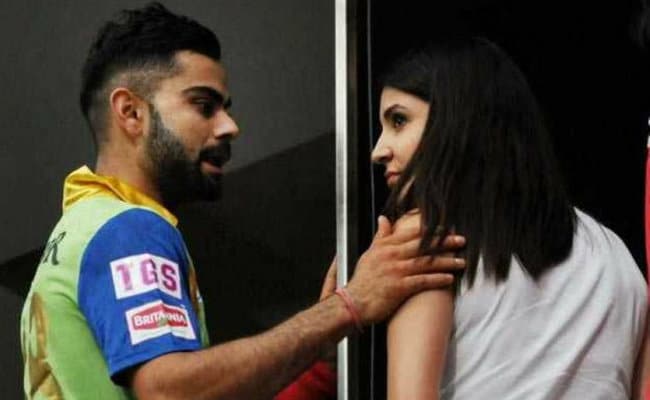It is true that bullies are cowards. If you bully the bully, you call their bluff. Going by this dictum, the best way to deal with trolls is to troll them.
Except that most of us are too civil to behave like trolls. Even if we were willing to abandon value systems, we often don't have the kind of time they seem to have. I have often considered creating anonymous social media accounts to give trolls a taste of their own medicine. Handling my own accounts alone is so much work, I can't imagine running multiple accounts and having to worry about not having my cover blown.

So how do we handle trolls? Here are four lessons from Virat Kohli and Anushka Sharma.
Firstly, don't engage with them - at all. Engaging with people who are clearly not trying to have a conversation but only bring you down, is never going to result in happiness. Trouble is, when trolls get you to respond even once, they have won. Now they know they have the ability to get under your skin, to make you feel defensive and compel you to issue a clarification.
Just one reply to a troll-bait, and countless trolls out there will know it works.
Anushka Sharma did right by not responding, at least this time, to Twitter trolls who mocked her for Virat Kohli's success, implying that Kohli was successful now that she was no longer in a relationship with him. If Anushka responds to such sexist remarks, it is likely the trolls would only repeat them, emboldened that they managed to rile her up.
Secondly, you set the agenda. Since it's the self-appointed business of trolls to respond to everything you say, it is convenient for you to keep on speaking without responding. Doing it this way, you are very much in control of your narrative, not allowing yourself to be drowned in their discourse. It's as if you have the microphone in your hands, but some hecklers in the audience are trying to shout you down.
This strategy often also needs deflection. The trolls want to talk to Anushka about how she's responsible for all the setbacks Virat Kohli's cricketing faces, and how Kohli does well when she keeps away from him. If you go to Anushka Sharma's timeline you will find tweets on controversial topics other than Kohli. Her tweet on not subjecting animals to Holi, for instance, takes the Anushka conversation away from Kohli and towards other things Anushka cares about, such as animal rights.
Thirdly, engage them but not with them. Not responding doesn't always mean you are letting them take over the battlefield. Winning the battle of online attention demands that you take over their battlefield. Except that you don't have to tag them and press the reply button. When you tag or name a troll, you make them a martyr-hero in their community.
Virat Kohli did just that in a Tweet and a similar post on Instagram. He did not tag a single troll, did not admonish anyone in particular, thus making his point only stronger.
We now have people apologising for their sexist remarks against Anushka. If Kohli had not made his point, these people would not have questioned themselves.
Fourthly, you win when your friends stand up for you. Virat standing up for Anushka is a lot more powerful than Anushka complaining, and not just because the trolling was supposedly in Anushka's name. (I'm still waiting for Prime Minister Modi to make a similarly powerful statement against online trolling and abuse by his fans.)
I got a taste of this last year when an anonymous troll tweeted that I had sexually harassed someone at my workplace, and that my bosses had told the woman in question to "kiss and make up". I was initially amused that someone was affected enough by me that he cared to cook up false stories against me. But soon everyone on Twitter who disagreed with my politics was calling me a rapist.
As I considered legal action, the harassment died down largely because I had enough friends on Twitter standing up for me. The most memorable was a tweet by Kushan Mitra, saying he couldn't imagine me molesting anything other than chicken malai tikka.
(Shivam Vij is a journalist in Delhi.)
Disclaimer: The opinions expressed within this article are the personal opinions of the author. The facts and opinions appearing in the article do not reflect the views of NDTV and NDTV does not assume any responsibility or liability for the same.


